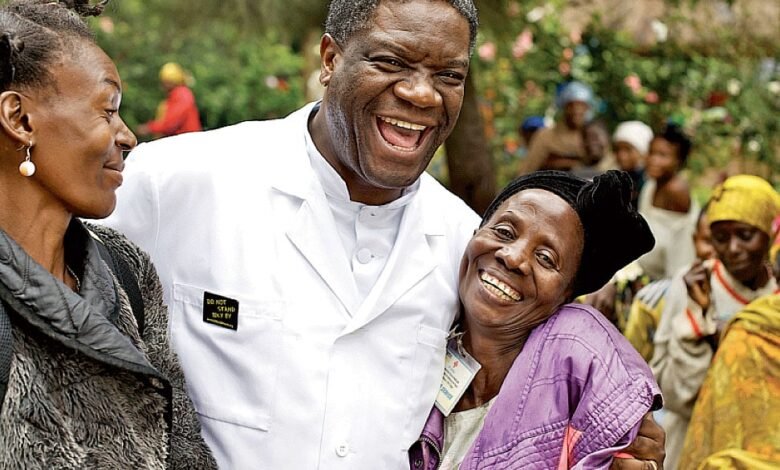Spotlight of the Week: Dr. Denis Mukwege
Nobel Peace Prize Laureate | Gynecologist | Human Rights Defender | Global Advocate Against Wartime Rape

Born on March 1, 1955, in Bukavu, Democratic Republic of Congo, Denis Mukwege grew up the son of a Pentecostal pastor. As a young boy, he often accompanied his father on visits to the sick. One day, they visited a terminally ill child and could only pray. The experience left an indelible mark on 8-year-old Denis.
“You can pray. But I will give medicines,” he told his father. That moment birthed a vow to become a doctor.
Mukwege pursued medicine in Burundi, later specializing in gynecology and obstetrics in France. His passion led him back to war-torn Congo, where sexual violence against women was used as a weapon of war during the Second Congo War and beyond.
In 1999, Dr. Mukwege founded Panzi Hospital in a remote, impoverished district of Bukavu, initially to provide basic obstetric care. But war changed everything. Survivors of rape by armed militias began flooding the hospital, many with horrific injuries inflicted by unimaginable violence: torn organs, mutilated genitals, gunshot wounds, and trauma that ran deep.
Some girls were as young as 6 years old. Some women were raped while pregnant. Others had weapons inserted into their bodies.
“At one point, I was performing up to 10 surgeries a day, working 17 hours non-stop,” he recalled.
Mukwege and his team didn’t just offer surgery, they created a holistic, survivor-centered model of care:
-
Medical treatment
-
Trauma counseling & psychological support
-
Legal aid for justice and accountability
-
Socioeconomic reintegration and vocational training
This model has now been replicated in multiple countries and is considered a global gold standard.
Despite being a doctor, Dr. Mukwege quickly realized:
“You cannot operate against violence. You can only abolish it.”
He began speaking out globally, demanding accountability from governments, the UN, and international powers. In 2012, shortly after addressing the UN General Assembly, denouncing impunity and calling for justice in Congo, he survived an assassination attempt. Armed men invaded his home, killed his security guard, and held his family at gunpoint.
Dr. Mukwege went into exile. But the women of Bukavu — the very survivors he served — raised funds, coin by coin, to buy his plane ticket home. Touched by their courage and trust, he returned to Congo in 2013, resuming his work at Panzi under tight security, refusing to be silenced.
Dr. Mukwege’s work has earned him global acclaim:
-
2018 Nobel Peace Prize (shared with Nadia Murad)
-
UN Human Rights Prize (2008)
-
Right Livelihood Award (2013)
-
Sakharov Prize by European Parliament (2014)
-
Named one of TIME’s 100 Most Influential People
-
Called a “Citizen of the World” by The Carter Center
Through the Mukwege Foundation, he now amplifies survivor voices and builds global coalitions to combat conflict-related sexual violence. The Foundation trains professionals, supports survivor networks, and lobbies for justice and international criminal accountability.
On October 2, 2023, Mukwege declared his candidacy for president in the DRC’s general election. Though he finished sixth, his candidacy symbolized hope and a new kind of leadership rooted in compassion, justice, and service. Dr. Denis Mukwege is not just a surgeon. He is a symbol of hope, resilience, and justice in a region torn by darkness.





